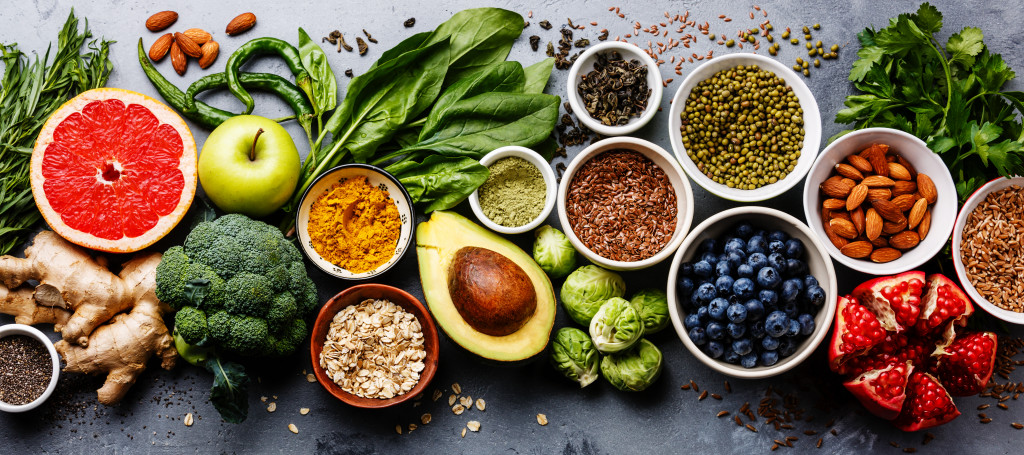- Stay hydrated by drinking at least eight glasses of water daily and including fluids from soups, teas, and fruits/vegetables.
- Incorporate healthy fats into your diet, like olive oil, nuts, seeds, avocados, and fatty fish.
- Maintain good dental hygiene and consider looking up tooth replacement options like dental implants.
- Practice portion control by paying attention to when you’re full and eating slowly and mindfully.
- Focus on consuming nutrient-dense foods like whole grains, fruits and vegetables, lean proteins, and legumes.
Aging may seem inevitable, but there are ways to maintain good health and improve longevity. One of the most important steps is following a healthy diet that supports overall well-being. With age, your dietary needs change, and it becomes necessary to make healthy dietary choices that take into account your nutritional needs. This blog will provide insights into a few essential tips on how to maintain a healthy diet as you age.
Stay hydrated.
As you age, it becomes more challenging to maintain a healthy balance of water in your body, which can lead to dehydration. The risk of dehydration is higher since the body becomes less efficient at regulating its water content. Staying well-hydrated is key, and it can be achieved by drinking at least eight glasses of water per day. You can also include fluids from soups, teas, and fruits and vegetables with high water content.
Incorporate healthy fats.
Healthy fats play an important role in maintaining overall health as you age. You can add healthy fats to your diet by consuming foods like olive oil, nuts, seeds, avocados, and fatty fish. Healthy fats not only promote heart health but also support cognitive function and bone health.
Take care of your teeth.

Maintaining good dental hygiene is essential for healthy eating as you age. Poor dental health can make it challenging to chew and digest nutrient-dense foods, reducing your nutritional intake. Additionally, untreated dental issues such as gum infections could lead to malnutrition, which is common among older people.
Having one or more missing teeth can also increase the risk of malnutrition. If this is the case for you, consider looking up tooth replacement options like dental implants. Dental implants are a safe and effective way to replace missing teeth, restoring your chewing ability and allowing you to enjoy a variety of healthy foods. They also help to improve facial structure and restore a youthful appearance.
Practice portion control.
Overeating can easily happen and lead to weight gain, which may cause other issues such as diabetes, heart disease, and joint problems. Portion control requires paying attention to when you’re full and being mindful of the types of food you’re consuming. Eating slowly and mindfully is a great habit when practicing portion control.
Additionally, being mindful of portions also helps to prevent overeating, as you can plan and measure the number of servings beforehand. This will help you to save money by buying the right amount of food and reduce the risk of wasting food.
Focus on nutrient-dense foods.
As you age, it’s essential to focus on consuming nutrient-dense foods to meet your body’s nutritional needs. Omit foods with high-calorie content that lack sufficient nutrients. Incorporate these foods into your diet instead:
Whole grains
Whole grains are a rich source of dietary fiber, vitamins, and minerals. Eating whole grains can help to lower cholesterol levels and improve digestive health. Whole grains can also regulate blood sugar levels, helping to manage your weight.
Fruits and vegetables
Fruits and vegetables contain essential vitamins and minerals such as vitamin A, which supports eye health, as well as calcium for bone health. They are also high in dietary fiber, helping to improve digestive health.
Protein
Eating plenty of protein is essential for maintaining muscle mass and energy levels as you age. Lean proteins like fish, seafood, chicken, eggs, beans, and tofu are good sources of protein that are low in saturated fat.
Legumes

Legumes are an excellent source of plant-based protein and fiber, both of which are important for maintaining a healthy weight. They can also help to reduce the risk of heart disease and diabetes. Legumes include beans, lentils, and peas.
By incorporating more nutrient-dense foods into your diet, you can ensure that your body is getting the nutrition it needs as you age.
Aging can be a difficult process, but it doesn’t have to mean sacrificing your health and well-being. Following the tips outlined in this blog, you can maintain a healthy diet supporting longevity.
Staying hydrated, incorporating healthy fats into your diet, taking care of your teeth with dental implants if needed, practicing portion control, and focusing on nutrient-dense foods are all essential for maintaining good health as you age. With these strategies in place, you can enjoy life at any age!
